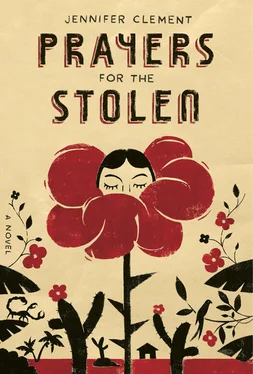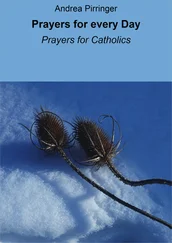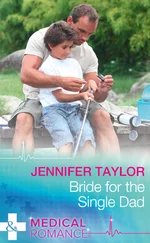During these concerts, Estefani would fall asleep and later complain that the music actually made her feel cold. After she figured out this was all we were going to do for the year, she brought a blanket to school and covered her back and shoulders. As Estefani’s mother, Augusta, became sicker from AIDS, Estefani became colder. The mother was sucking the heat out of the daughter.
Maria, who was the best cumbia and salsa dancer around, didn’t mind listening to this music. As long as she didn’t have to do mathematics, she was happy.
On those mornings I laid my head on my arms and closed my eyes. Within Tchaikovsky’s music, I heard the earth quake below the ground. I heard tree roots spread under the land. I heard poppies open their petals.
I listened for Paula’s voice, but I heard nothing.
I was sure she was dead. We were all sure she was dead. So, when she came back, my mother said, Oh my, the coffin has been opened and she walked out of it.
That was the last year that we went to school. A Primary School diploma was a door out of childhood. The truth is some of us were twelve, thirteen, or even fourteen when this happened because it took forever to graduate. There were years when teachers simply gave up and left halfway through or years no teacher ever even showed up.
The only reason we graduated was that Mr. de la Cruz didn’t care if we knew anything or not. He announced that there would be no final exams and he signed the diplomas and got out of there as fast as he could. I was sure he thought it was a great success to have left our part of the world without a bullet hole in his body.
Now that school was over we had to think about what we were going to do. Estefani knew she had no choice. She was going to spend these next years watching her mother die. Maria was going to wait and see. Mike was bringing more money home and was pushing for Maria and his mother to leave this mountain and move to Acapulco. He said he was going to buy them a house. Nobody even asked what Paula would do as she now lived like a baby and was locked up in her house all day.
My mother said to me, You’re not going to sell iguanas on the side of the road. You’re not going to go to the beauty parlor school in Acapulco. You’re not going to be a maid in Mexico City. You’re not going to work in a factory on the border. You’re not going to stay here doing nothing and you better not get pregnant or I’ll kill you.
One day my mother and I were up on the clearing when Mike came over and stood next to us. He literally seemed to hop to the music of the cell phones in all his pockets that rang and chimed and jangled and buzzed. He fidgeted and wriggled inside of himself as if his bones were strutting inside the clothing of skin. As a young boy he used to walk around with a pet iguana tied to a string. He was heartbroken when his mother stewed that iguana in a pot with carrots and potatoes.
From one of his pockets Mike pulled out a gold chain and gave it to my mother. I’ve always wanted to give you something pretty, Rita, he said. You’ve got enough ugly in your house.
Mike said he knew of a family in Acapulco who needed help with their small child and was looking for a nanny.
That’s perfect, my mother said. That’s perfect for you, Ladydi.
You’ll have to live in Acapulco most of the week, Mike explained. You’ll make pretty money. These people are rich, rich, rich. Mike punctuated the word rich by snapping his fingers three times: snap, snap, snap.
My mother stood up straight when she heard the family was rich. I knew she was thinking of all the things I could steal and bring home. In the mirror of her eyes, I was filling up my bag with a lipstick and a bottle of shampoo.
I knew what it would mean to leave. I knew my mother would fall asleep with her jaw dropped and her mouth agape. The television would be tuned to the History Channel and words about castles in France or the history of chess would fill the room. She would be surrounded by empty beer bottles. Long black ants would crawl in and out of her mouth and there would not be a daughter around to flick them away.
Yes, I said to Mike. Yes.
As my mother and I left the clearing and walked back home together we moved past the tree where we’d buried the corpse years ago before Paula was stolen. We never found out whom that young man belonged to. No one ever came around asking. The jungle has ears all over, my mother said. There are no secrets here.
That afternoon I found out what had happened to Paula.
I was walking down the path that led to the schoolroom, when I ran into Paula sitting under a tree. She was sitting on the ground, which we never did. On our mountain we always placed something between our skin and the earth.
She was wearing a long dress that covered her like a tent. I knew that insects were crawling up her bare legs under the cloth.
I felt the warm, black earth under my feet.
The ground had brought us together.
I wanted to hold her hand. Her face was bent over as she looked at something in her lap.
I walked slowly toward her, the way I had learned to walk when I wanted to catch a small garter snake or a baby iguana. As I approached, my body came between her body and the sun and I covered her with the eclipse of my shadow.
She looked up and I sat next to her on the ground. I knew I’d be brushing black and red ants off my skin within a minute. Paula’s dress was covered with black ants swarming all over. A few had already migrated up her clothes; crawled around her neck and behind her ears. She did not flick them off.
Don’t you feel so sorry for Britney Spears? Paula said.
The long sleeves of Paula’s dress were folded over and pushed up. On her left arm, the inside where the skin is pale and thin like guava skin, I could see a row of cigarette burns, circles, polka dots, pink circles.
You know, Paula continued, Britney has many tattoos.
Yes? No, I didn’t know.
Oh yes. She has a fairy and small daisy circling her toe.
No, I didn’t know.
And she has a butterfly and another flower and a small star on her right hand.
Oh. Really?
Yes. Her body is like a garden.
Do you know who I am? I asked.
Oh, yes, of course. You’re Ladydi.
I brushed a few ants off her legs and arms. Get up, I said. The ants are going to eat you alive if you sit here any longer.
The ants?
Does your mother know where you are?
I took hold of her wrists and helped lift her up. I will take you home, I said.
Let me be with you for a little longer. I like you, Paula said. You’re nice to me.
I held her hand and walked with her toward a log a few steps away.
We can’t sit on the ground, I said.
We sat down, side by side, looking forward as if we were on a bus heading down a highway. I took her hand in mine and looked at the pattern of cigarette burns on the inside belly-skin of her arm.
I’ve seen tigers and lions, she said. Real ones. It wasn’t a zoo.
Tell me.
At that place there was a garage for the cars and a garage for the animals.
You can tell me.
Paula described the ranch. It was in the north of Mexico, in the state of Tamaulipas, right on the US border. An important drug trafficker, who was known by the nickname McClane after Bruce Willis’s character in the movie Die Hard , lived with his wife and four children. McClane had been a policeman.
I was his slave-mistress, Paula said.
Slave-mistress?
Yes. We call ourselves that. All of us do.
At one end of the ranch there was a garage that housed McClane’s cars, which included four BMWs, two Jaguars, and several pickup trucks and SUVs. Next to the garage there were cement rooms that contained a lion and three tigers. Paula learned from the caretakers that the animals had been bought from zoos in the United States. The property also contained its own small cemetery with four large mausoleums that were the size of little houses. Each mausoleum even had a bathroom.
Читать дальше












